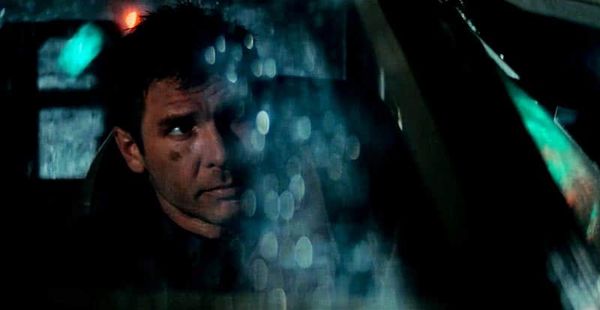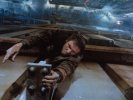Eye For Film >> Movies >> Blade Runner: The Final Cut (1982) Film Review

It is the film that sparked a thousand imitators and now Ridley Scott’s version of Philip K Dick’s Do Androids Dream Of Electric Sheep? has been given the treatment many feel it has long been denied. The result is simply breathtaking.
It’s easy to forget how much watching a film on the small screen can diminish its effect, so sitting in a huge New York cinema on the opening night of its general release proved a much more intensely emotional experience than I would have expected.

This latest, Final Cut, is the result of around seven years of work, that has involved reshoots, sorting through negatives and plenty of modern technowizardry.
The story, of course, remains the same. Harrison Ford is Deckard, a film noir style policeman who has his retirement cut short in order to "retire" a group of renegade replicants – work androids built for off-world colonies. With almost super-human strength and intelligence, these "skin jobs" – Zhora (Joanna Cassidy), Leon (Brion James), Pris (Daryl Hannah) and their leader Batty (Rutger Hauer) – are intent on meeting their maker with a view to extending their life spans beyond their all-too-short four-year programming.
But if the story remains the same, the visuals are vastly improved. Most of the changes may be minor but when taken together they exponentially enhance the look and feel of the film. The cityscapes have been cleaned up to stunning levels of clarity – these rain-slicked streets have never felt more grim, while the cars in flight have never looked more realistic.
The sound, too, has a new sharpness and it is amazing how little Vangelis’s soundtrack has aged down the years. It seems as eerily appropriate now as ever and still has a slight futuristic edge.
A larger change, worthy of particular mention, is Zhora's death scene, for which Cassidy shot fresh footage. Thankfully, she had kept her original costume and there is no sign of a dodgy stunt-double wig that ruined the moment in the original version. The result is as beautiful as it is visceral – and this notion of violence extends further throughout the film. There are lingering shots of eye gouging and hand stabbing, almost mesmeric in their intensity.
It is the characters that benefit most from this version. By dispensing with Deckard's narration, there is the sense we are watching a lone gunman, hard boiled and highly dangerous.
The famous dream sequence, in which Deckard sees, not electric sheep, but a beautiful unicorn, is retained from the earlier director’s cut, adding a complexity to the character and his relationship with "femme fatale" replicant Rachael (Sean Young). Here, he seems even more conflicted and compromised than before.
There are additional tweaks, correcting continuity errors, but perhaps the most poignant change comes with Batty’s release of the dove on the roof, now given a much more dystopian feel.
Forget the all-singing, all-dancing DVD version, which will be gracing our shores in December, and beg, borrow or steal a ticket to see it on the biggest screen you can find – where people’s pupils glow with hidden emotion, the streets shine with a sorrowful slickness and the billboards dominate the skyline. That is where this blade runner cuts the deepest.
Reviewed on: 06 Oct 2007
















